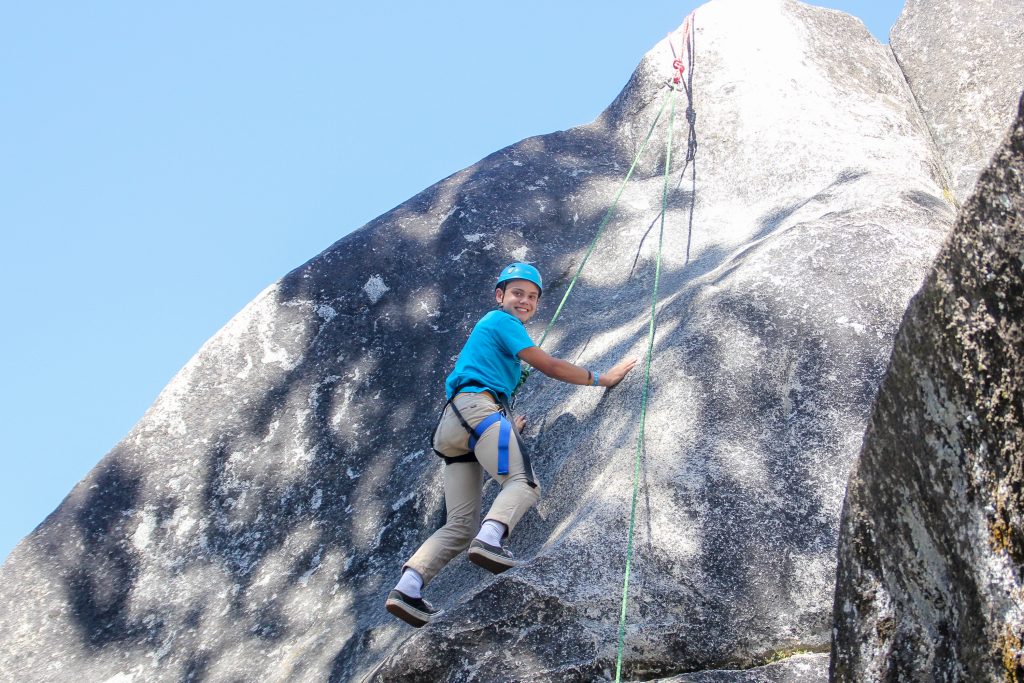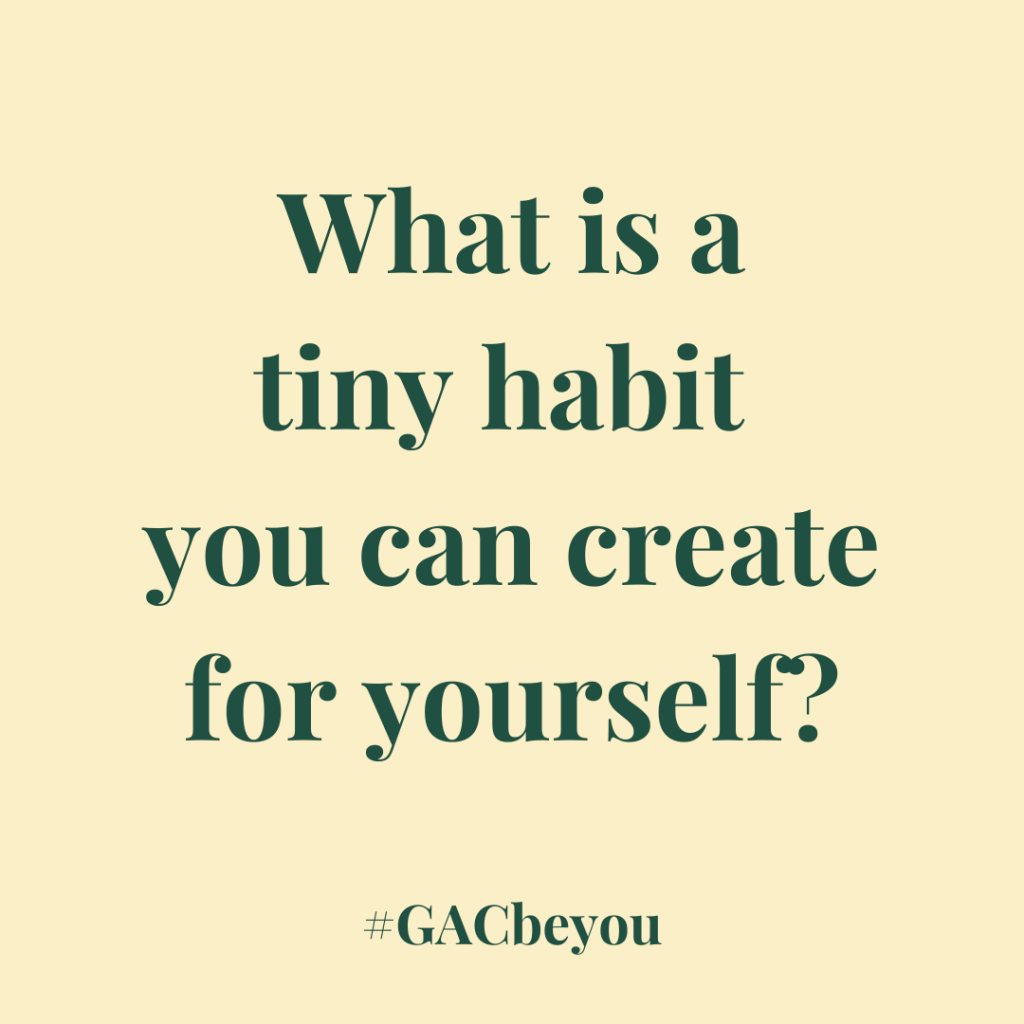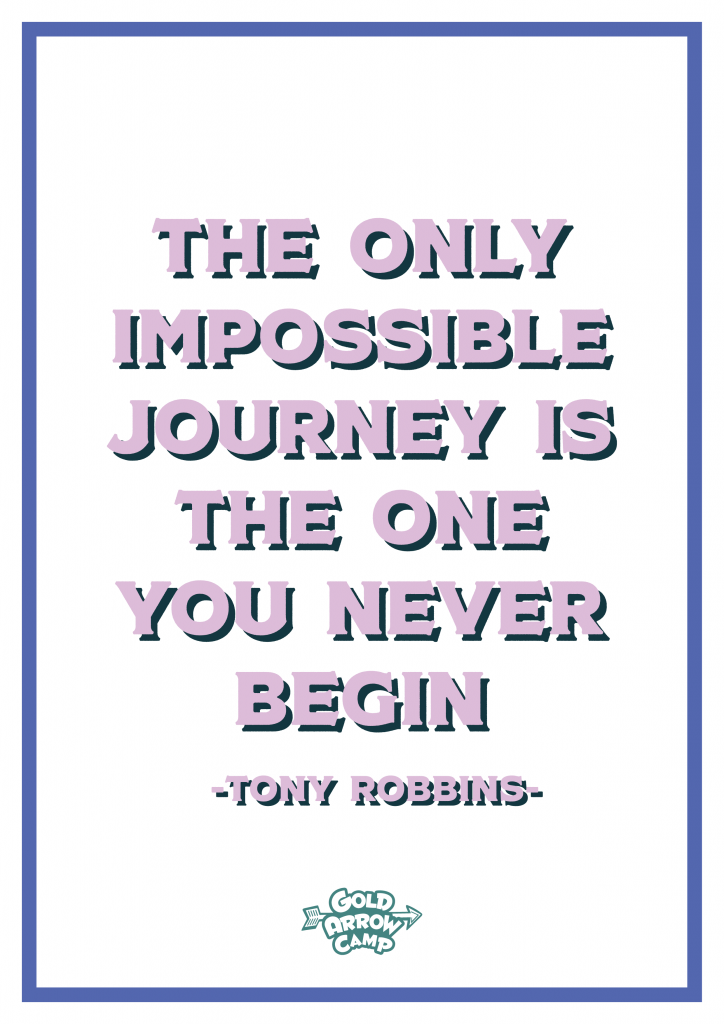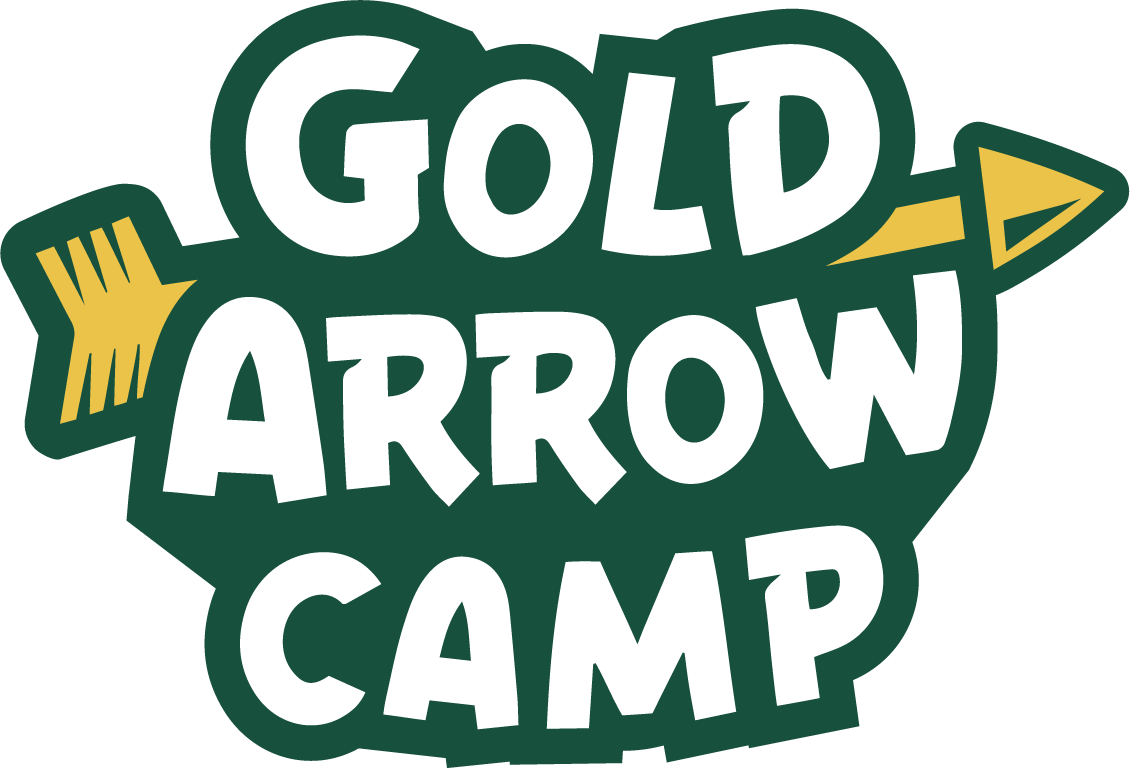Start the Year with Some GAC Goals
January is a great time to reevaluate priorities and set goals for the new year. One way to help children and young adults establish a strong commitment to a goal is to create a goal as a family. The Gottman Institute states, “Families who make goals together, keep goals together,” and Kelsey Down explains the benefits of creating a family goal:
“Many of our routines are built around work and family, but your autonomy and ability to make personal changes to your life can be undermined by your greater responsibilities. So if you want to exercise more or eat healthier, you are more likely to do so if your other family members exercise with you and eat the same things you do. But if you are the only one in your family that is actively working towards a goal, constantly removing yourself from your other family members’ habits (e.g. eating a salad during family pizza night) will eventually erode your desire to keep your resolutions. You might stick with eating salads for a while, but that pepperoni pizza will be more tempting when everyone else is enjoying it but you. You shouldn’t force your family to do what you’re doing, especially if they don’t want or need to, but you can easily find ways for you and your family to work together and achieve a common goal.”
If you want your children to unplug more or spend more time in nature, consider creating a goal in which everyone participates equally as a family, and framing the goal as a SMART goal (specific, measurable, achievable, relevant, and time-bound).
After two weeks (or more!) at Gold Arrow Camp, many campers are motivated to continue some of their camp habits – like using their phone less or practicing the friendship skills they used at camp. January is a great opportunity to refocus on some of those practices and intentions. In Audrey “Sunshine” Monke’s book Happy Campers, Audrey writes about the power of bringing the magic of camp (and the habits we learn while going to camp) home. Here are five ideas inspired by our healthy habits at GAC to help your family come up with a family goal for 2024.
1. Complete the 1,000 Hours Outside Challenge!
1,000 Hours Outside is a “movement to reclaim childhood, reconnect families, and live a fuller life.” The goal is to spend 1,000 hours outside in one year. 1,000 Hours Outside has free tracker sheets that are available to download. There are many benefits to spending time outside, however the National Wildlife Federation found that the average American child spends four to seven minutes in unstructured outdoor play each day. As a family, brainstorm ways to spend more time outside in 2024! Every Kid Outdoors provides families of 4th graders with free passes to all of the national parks. Create a list of different national parks, trails, hikes, local parks, and places to visit as a family, or plan a bigger outdoor adventure and go on a family camping trip!
2. Come up with fun, screen-free activities and set screen-time limits as a family.
Decide what would work best for your whole family (both parents & kids!), and come up with parameters that you agree on as a family. Maybe everyone agrees to plug in and turn off their phones by 8pm each night, or you could download an app that helps everyone in your family monitor their screen time and social media usage and create a family challenge (maybe with prizes!) for whoever uses their screens the least. In Happy Campers, Audrey shares a great conversation format for talking about screens with your children. As a family, consider brainstorming fun screen-free activities that you want to do together in 2024, for example, a card game every Wednesday night, or a hike or bike ride together every Sunday. Write your ideas down and post them somewhere you’ll see them, or create a checklist so you can check off as you try each person’s suggestions.
3. Set a family reading goal.
At Gold Arrow Camp, counselors read to campers every night (even our oldest campers!). Talk about which books each family member is going to read this year, or establish a daily or weekly time when your family reads together. For younger children, select a chapter book to read as a family. Make visiting the local library part of your weekly routine. My family enjoys following each other on Goodreads (a reading social media platform). When we see each other in person, we have lots of great conversations about what we’re reading and give each other book recommendations.
4. Establish a sharing practice.
At Gold Arrow Camp, campers share their highs and lows, or something else about their day, every night at campfire. In Happy Campers, Audrey discusses the benefits of daily sharing. Find a time for your family to connect and share each day. This could be sharing highs and lows, or responding to a different question each night at dinner. If evenings are busy, find a time when you are consistently together as a family (breakfast, right before bed, in the car) and establish a routine of sharing, listening, and connecting with each other!
5. Pick a theme for the year!
Each year at Gold Arrow Camp, we choose a summer theme. In 2023, our theme was Count on Me, and we talked about ways we can be more dependable and reliable people! Here is more information on choosing a family theme.
More Resources:
*Free PDF Download* Screen Time: 3 Steps to a Successful Family Meeting
The Gottman Institute: Make Your New Year’s Resolutions a Family Affair
How Nature Can Make You Kinder, Happier, and More Creative
BE YOU: Get Stronger
BE YOU Week 8: Get Stronger
“The only impossible journey is the one you never begin.”
– Tony Robbins
There are many ways to get stronger. We get stronger physically by exercising or playing sports, but we can also get stronger mentally or emotionally by pushing ourselves outside of our comfort zones. Sometimes we need to test the waters and see how our bodies and minds react to trying something new. We might start to climb the ladder at high ropes and realize that our heart is racing and our body is tensing. That’s okay. You tried and now you can create a goal to try again. Maybe next time you will push yourself to finish climbing the ladder. Then the next time you will push yourself to climb the ladder and stand at the top for ten minutes. While we are pushing ourselves physically, we are also pushing ourselves mentally. We are becoming mentally stronger knowing that we can trust our body and mind to accomplish great things.

At camp, we like to set goals. Whether you are a camper or a staff member, setting goals is important to the growth you experience during your time at camp. The goals you set for yourself help you push yourself outside of your comfort zone, and in turn, make you stronger emotionally, and maybe even physically. Sometimes our goal is to try a new physical activity, like high ropes or waterskiing, and sometimes it is to emotionally challenge ourselves, like learn three fun facts about a new friend.
This Week’s #GACbeyou Challenge
Journal or share with someone else (can be a parent, sibling, or friend) your answer to this question:

Small things that we commit to doing every day can make us stronger. We get in the habit of doing these things and they become easier and part of who we are. At GAC, we like to use BJ Fogg’s model of Tiny Habits. A tiny habit is something that is so small that if you do it over and over again you will get a changed outcome. Here is a way to create and accomplish your tiny habit:
1. Trigger: After I ______ (pick something you do regularly, like brushing your teeth or picking up your phone)
2. Tiny Habit: I will ______ (do three pushups, write a gratitude note, drink a glass of water, etc.)
3. Celebrate: AWESOME! (pick a celebratory act, like high-fiving yourself in the mirror or giving yourself a fist bump)
When you celebrate your changed behavior, your brain reacts in a positive way and wants that praise more, therefore you will want to keep doing that habit. Once your tiny habit has become easy or part of your everyday routine, you can adjust that habit to keep pushing yourself further.
GACspiration
Want to be inspired? Print out this week’s GACspiration and post it on your bathroom door or mirror (just like at GAC)!

Activity Ideas
Think of ways that you can get physically and mentally stronger that are outside of your comfort zone. What are some physical things that you can do to become stronger? Try to make a tiny habit out of one of those and push yourself to where you are more comfortable doing that activity. Now think of ways you can become mentally or emotionally stronger. Sometimes those physical and emotional actions will overlap. Over time, you will become stronger and more confident!
Resources
Podcast: Play in new window | Download
